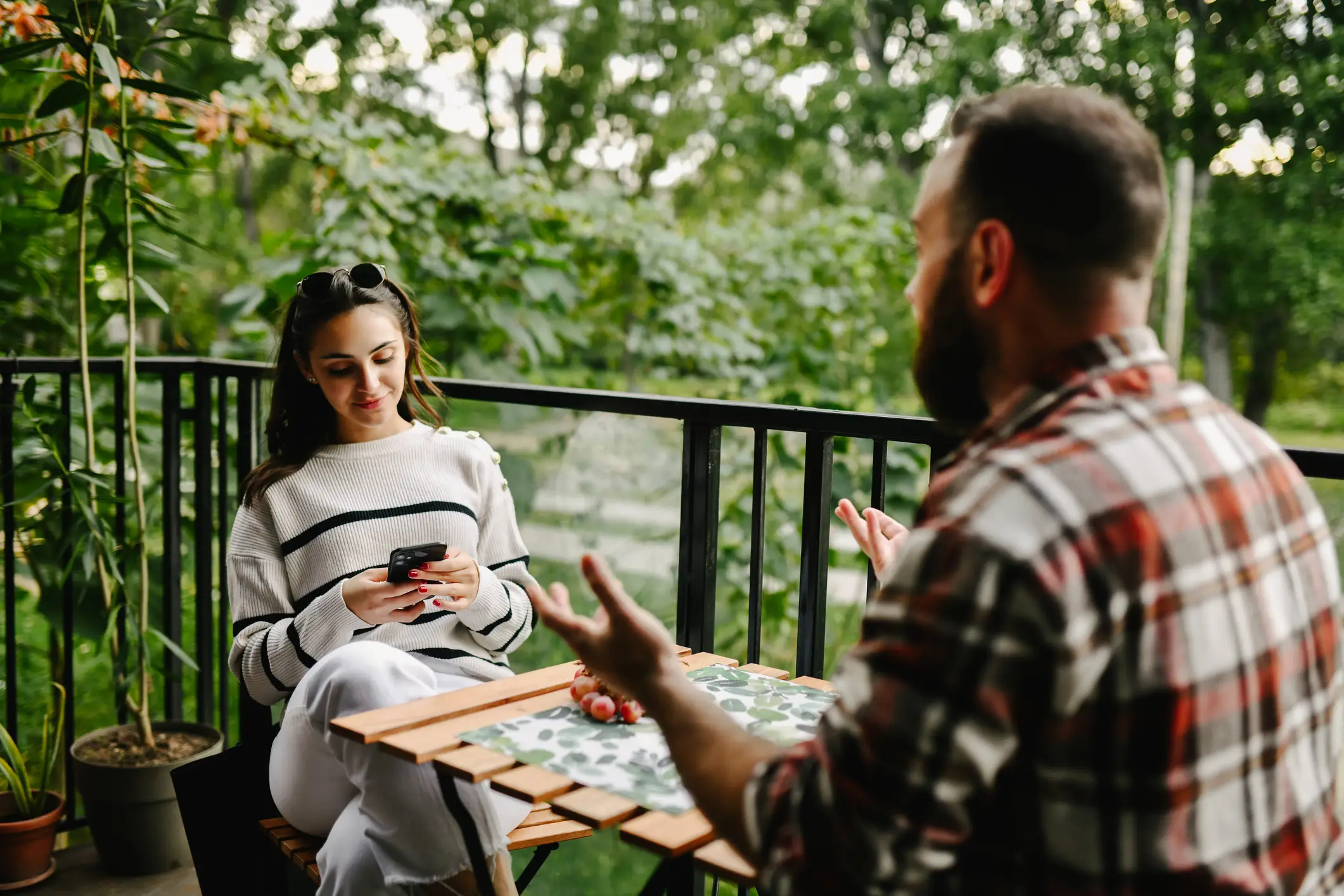
Researchers have warned of the damaging effects of a relationship trend we're probably all a bit guilty of.
While no way near as risque or extreme as hamstering - shudder - this everyday habit could be the beginning of the end for some relationships, according to science. The practice in question crops up in all our relationships - parents, friends, partners. But it's the latter that can often sting the most.
We're talking about phubbing; where the person you're talking to snubs you in favor of their beloved phone instead.
We've all done it at some point as social media has rewired us all and our attention spans are now so short even a goldfish would be impressed.
Advert
Now, researchers from the University of Southampton, UK, have revealed how different people respond to phubbing - and it's pretty heartbreaking.
Dr Claire Hart, Associate Professor of Psychology at the University of Southampton and coauthor of the study, said: “We know that everyone finds phubbing frustrating and annoying. It might seem trivial, but in relationships these small moments can mount up, creating a sense that your partner’s attention is elsewhere and that you’re less valued."

The study, published in the Journal of Personality, investigated three personality types to see how the trend affected them.
Some 196 people took part and fell into one of three categories: those with attachment anxiety - people who fear being abandoned and need lots of reassurance - those with attachment avoidance - people who feel uncomfortable with closeness and tend to keep distance - and those with secure attachments - people who feel stable and secure in relationships.
Participants kept a diary for 10 days and wrote down how they felt when their partner phubbed them and how they responded - such as retaliating by using their own phone.
The findings discovered that everyone found phubbing annoying, but those with anxious attachments felt it more strongly.

They reported feeling more depressed and had lower self-esteem after being phubbed and retaliated by picking up their own phone, usually to post or message others for validation and comfort.
Dr Kathy Carnelley, Associate Professor of Psychology at the University of Southampton and coauthor of the study, warned: “While this kind of retaliation might offer immediate comfort, it may lead to a downward spiral of poor interactions.”
Those with avoidance attachment were less emotionally affected and didn't tend to confront their partner when phubbed.
When they retaliated, it was mostly to get approval rather than real connection.
Secure individuals, unsurprisingly, coped better and didn’t spiral as much.

Dr Hart said that being accused of phubbing makes you 'a bad partner,' but there are some simple steps to be more mindful.
"Creating phone-free zones at mealtimes or before bed and discussing phone boundaries openly can help both partners feel respected," she said.
"If you must check your phone, acknowledge the interruption, explain why and return your attention quickly.
“Simply put, put down your phone to pick up your relationship.”
Topics: Social Media, Mental Health, Sex and Relationships, Science